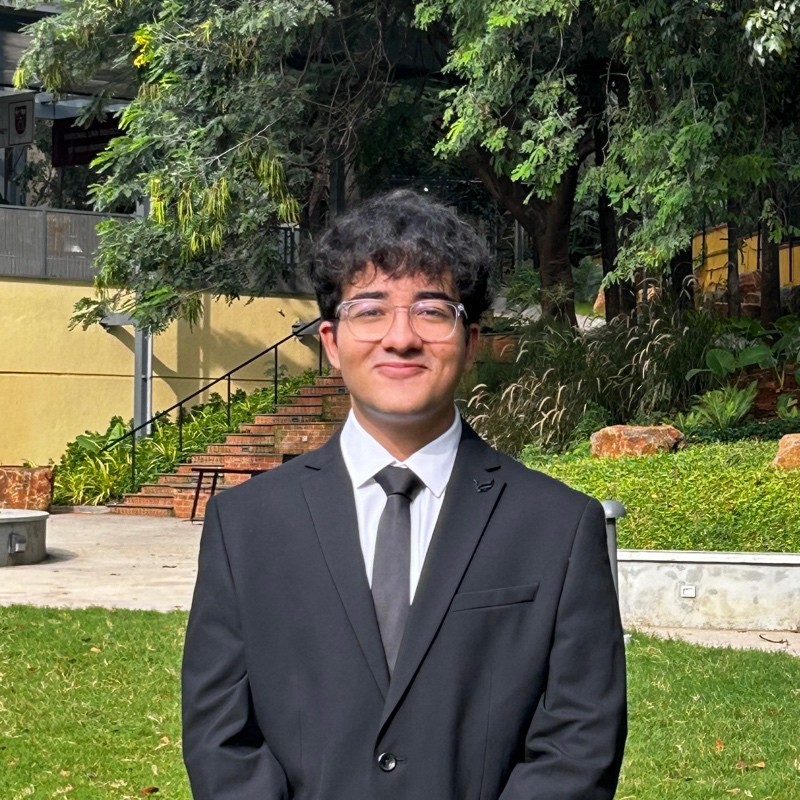
Viraj Thakur
The meaning of the phrase ‘unsound mind’ has been debated by scholars in the context of §84 of the erstwhile Indian Penal Code (‘IPC’), now §22 of the Bharatiya Nyaya Sanhita (‘BNS’). The same phrase has been used in Chapter XXVII of the Bharatiya Nagarik Suraksha Sanhita (‘BNSS’). Yet, its meaning is not the same across both statutes. In this essay, I explore what “unsound mind” refers to in the BNSS. My central argument is that though the legislature employs unsound mind in the BNSS, the standard consistently applied has been primarily (and often wholly) medical, often alluding to the definition of “mental illness” as under the Mental Healthcare Act, 2017 (‘MHA’). In other words, though the courts and legislative intent assert that there is a difference between the phrases “unsound mind” and “mental illness,” they end up alluding to the mental illness in effect.
First, I lay out the schema of the Chapter XXVII of the BNSS and briefly explain them. Second, I examine judicial pronouncements as to the meaning of “unsound mind” in the BNSS, revealing the ambiguity in Indian jurisprudence surrounding the same. Thus, I argue that it may be time to use “mental illness” in place of “unsound mind” in the BNSS as well, given that judicial pronouncements consistently employ the former standard, leaving the notion of “unsound mind” undealt with.
Case law relating to the IPC and Code of Criminal Procedure (“CrPC”) is applied to the BNS and BNSS respectively, as there is little substantive difference between them.
General Framework
Chapter XXVII of the BNSS deals with provisions for an accused of unsound mind, who is entitled to special privileges in the criminal justice system. According to §367 and §368 of the BNSS, if a magistrate or court has “reason to believe” that an accused is of “unsound mind”, he must direct an examination of the accused to determine his unsoundness of mind (or, if the accused has an intellectual disability). If they do have such “reason to believe”, it is mandatory for them to follow the scheme provided for under these sections (Gurjit Singh v The State of Punjab, ¶8). This means that the manner in which the accused behaves must raise a reasonable doubt as to the soundness of their mind, warranting further examination. A medical inquiry is unnecessary if the accused does not seem unsound on examination and production of evidence (I.V. Shivaswamy v State of Mysore, ¶23), which may include an examination of his demeanour, medical reports produced by the parties, etc. (Sunil Tejbahadur Singh v State of Gujarat, ¶26).
If not, the procedure continues as per the other sections of the BNSS. If the accused is intellectually disabled, they are discharged. If they are found to be of unsound mind, an inquiry is then undertaken as to whether the accused is “incapable of making their defence”. If so, and if there is no prima facie case made out against the accused, they are discharged and dealt with as per §369. However, if there is a prima facie case, the proceedings are merely postponed until the accused can be treated under §369.
Under §369, an accused who is of unsound mind and who cannot make his own defence or who is intellectually disabled can be released on bail, irrespective of whether the offence is bailable or not, based on whether they require in-patient treatment (i.e. admission to a psychiatric institution for treatment) and if a friend or relative undertakes to obtain regular out-patient treatment as well gives security that he will prevent the accused from causing injury to himself or another.
§369(3) prescribes that the nature of the act alleged to be committed and the extent of his unsoundness must influence the decision to grant bail. Given this, the accused must be detained somewhere where he may receive regular treatment if he cannot be released on bail. In the meantime, the trial stands postponed–it may be resumed when the accused becomes of sound mind and then is capable of making his defence.
The rationale behind these provisions is to protect the interests of an accused who is “incapable of making his defence” and hence unable to stand trial. In other words, as noted in the 154th Law Commission (“LC”) Report of India, it is believed that an accused who is of unsound mind and incapable of defending himself cannot be guaranteed a fair trial in the first place. Hence, trying persons of unsound mind in the same manner as others of sound mind is inherently unfair. The process violates his right to a fair trial under Article 21, as he cannot understand the charges levelled against him or consult adequately with his counsel.
The above is also why, unlike in the BNS, unsoundness of mind does not need to be a defence to be raised by the accused/their counsel. It may be raised as a plea by the defence counsel, as noted in Gurjit Singh (¶10). However, in Pandit v State of Maharashtra (2021), it was held that the magistrate/court must be vigilant of the state of mind of the accused as well (¶¶27, 28). In either case, the defence and the prosecution are both free to bring evidence (Gurjit Singh, ¶10).
What is Unsoundness?
The phrase “unsound mind” is perhaps most popularly dealt with under §22 of the BNS (erstwhile §84 of the IPC). There, unsound mind refers to legal insanity wherein the accused pleads unsoundness as a defence by arguing that they did not understand the nature of the act they committed (Prakash Nayi v State of Goa, ¶5). In the BNSS, however, “unsound mind” has a different connotation (Sunil Tejbahadur Singh, ¶36). In the rest of this section, I explore the contours of what it means.
Legislative intent shows that unsoundness was not intended to be equated to mental illness evidenced by their choice not to use the phrase “mental illness” in place of unsound mind in the context of the BNSS. This was seen in §22 of the BNS as well, wherein “unsound mind” was preferred over “mental illness”,as per its definition under §2(s) of the MHA:
“‘mental illness’ means a substantial disorder of thinking, mood, perception, orientation or memory that grossly impairs judgment, behaviour, capacity to recognise reality or ability to meet the ordinary demands of life, mental conditions associated with the abuse of alcohol and drugs, but does not include mental retardation which is a condition of arrested or incomplete development of mind of a person, specially characterised by subnormality of intelligence;”
Mental illness was noted to be overbroad in including disorders such as depression, noted to be outside the ambit of the criminal codes.(Report on the first iteration of the BNS, ¶3.6.3). The Standing Committee also noted that prosecutors may abuse this provision, claiming protection under this section for all offences by asserting that their client is mentally ill (¶3.6.4). This may be one possible justification for using “unsound mind” and not “mental illness” in both codes (§22 of the BNS as well as Chapter XXVII of the BNSS).
§3(5) of the MHA also posits that no one shall be held to be of unsound mind (undefined under the MHA/any statute) merely due to a mental illness (defined under §2(s)), providing another instance of a distinction between the two terms. The same distinction can be seen in §368(1) of the BNSS, stating that the court must determine the unsoundness of an accused by considering “medical and other evidence produced before him” (emphasis supplied). If unsoundness was intended to be an entirely medical consideration by the legislature, there would be no need to specify that ‘other evidence’ could also be produced before it.
The Supreme Court (“SC”) too recently observed that unsoundness is a question of legal insanity and not medical insanity (due to mental illness), for the purposes of both the IPC and CrPC (now, the BNS and BNSS) (Prakash Nayi v State of Goa, ¶18). Along these lines, the Punjab & Haryana High Court (“HC”) too has noted that unsoundness of mind is distinct from a psychotic disorder.
However, I shall demonstrate that this does not truly apply to the BNSS–legislative intent as well as courts have erred in separating the two. In other words, despite the legislature and courts attempting to draw a distinction between mental illness and unsoundness of mind, I argue that in effect, unsoundness of mind specifically under the BNSS becomes a question of mental illness under the MHA
Medical reports are the primary (and often only) evidence referred to, by the SC as well as various HCs. Thus, there seems to be a very thin line dividing the two. In Prem Singh v State of Punjab, at ¶23, the court observed that “[the accused] was never found suffering from any mental illness so as to be regarded as a person of unsound mind”(emphasis supplied). However, if the two were to be distinct (as envisioned above), then mental illness would never be sufficient by itself to construe the accused as being of unsound mind.
As per Kamal Bhardwaj v State (NCT of Delhi) , while considering medical evidence is necessary (¶9), courts must also look at the “manners” and “actions” of the accused (¶1), which is ambiguous. Hence, so far, unsoundness under the BNSS seems to be equivalent to mental illness in addition to the “manners”/“actions” of an accused during trial.
Courts also weigh the inability of the accused to understand the consequences of his actions, though they confusingly factor this in as a part of “mental illness.” This was recently the case in Shobhit Suman v CBI (2024), in the Jharkhand HC. Here, it was held that unsoundness must be such that the person has “become incapable of understanding his own business and of forming a rational judgment as to its effect upon his interest” (¶12). It may be noted that, first, this fits the §22 standard (under the BNS) better than it does the BNSS standard. Second,. as per the definition of mental illness under §2(s),
Being unable to understand the consequences of your actions is a part of mental illness under the MHA. Hence, the court in Shobhit seems to be alluding to mental illness. This does connect with the rationale of this chapter of the BNSS as well. Being unable to make a rational judgement and understand the consequences of your actions can lead to an inability to understand the trial, charges levelled against yourself as the accused, etc. This in turn can amount to a violation of one’s right to fair trial under Article 21, as explained in Section-I.
However, this seems to be in direct contravention of legislative intent and earlier pronouncements, which assert a distinction between unsoundness and mental illness. Yet, in effect, the courts either rely exclusively or mostly on medical evidence (see endnote), effectively allude to the definition of mental illness under the MHA (as in Shobhit), or at best, move past mental illness by looking at the “manners” and “actions” of the accused (as in Kamal Bhardwaj). However, it may be argued that even such manners and actions could be considered as a form of determining whether one is “mentally ill” in the sense of the extent to which they are in touch with reality (under §2(s) of the MHA). Hence, based on all of the above, I argue that perhaps the BNSS has wrongly retained the phrase “unsound mind”, when every pronouncement seems to point towards mental illness (in a clinical sense) being the metric instead.
Additionally, the legislature’s concern that “mental illness” is overbroad and affords protection to those with illnesses such as depression may not be entirely valid either. The BNSS explicitly prescribes that the protection of these sections is only afforded to those who are of unsound mind and incapable of making their defence. Thus, if mental illness was used in place of unsoundness of mind, those who fall within “mentally ill” are circumscribed and reduced to those who are consequently also “incapable of making their defence.” The problem of mental illness being overbroad does not arise then, as judicial determinations (reliant on medical evidence) continue to determine who is and is not capable of making their defence.
So, for instance, suffering from clinical depression may not lead to one being incapable of making their defence in terms of being unable (and not unwilling [p.177]) to understand the charges levelled against them, being unable to consult with counsel, a lack of a reasonable understanding of the charges levelled against them, etc. However, being afflicted with schizophrenia may. In fact, in Upen Basumatary v State of Assam, the Gauhati HC relied on Prem Singh to hold that a person with schizophrenia suffers from an “overpowering mental illness” that renders them unable to stand trial because they are not in a fit state of mind to stand trial (¶50). Hence, the requirement of there being a causal relation between being mentally ill and being incapable of defending themselves solves the concern of mental illness being overbroad.
On a more humorous note, the Calcutta HC has created further confusion in Mrinmoy Chandan Dutta v State of West Bengal (2024) by employing phrases such as “unsound mind illness” (¶31).
Most recently, the Kerala HC in V.I. Thankappan v State of Kerala (2024) adjudicated on whether severe dementia would fall under its ambit (¶10). Noting the schema under these provisions (¶¶13-15), with particular reference to the BNSS as well (¶19), the court held that dementia caused due to Alzheimer’s, when severe enough, would fall under the ambit of “intellectual disability” under the BNSS (¶23), a term noted to be wider than “mental retardation” in the CrPC (¶20). This would extend retrospectively as well, to ensure the fair trial of various accused under Article 21 (¶24). The court also noted that affording greater protection to those subjected to the criminal justice system after the enactment of the Sanhita than those subjected prior would also violate Article 14 (¶29). Thus, in including severe dementia (something that makes an accused incapable of defending themselves) within “intellectual disability” under the BNSS, the protections of these provisions have been extended to a wider set of accused. Yet, unfortunately, despite numerous references to the definition of mental illness under the MHA, the court does not delve into the significant overlap noted between mental illness and unsoundness of mind.
Conclusion
Hence, the BNSS has retained the phrase “unsound mind” as against “mental illness.” The legislature had justified this by stating that mental illness is too broad in its ambit. Judicial pronouncements assert the same, claiming that the two terms are not synonymous. Yet, the provisions themselves are ambiguous as to what is subsumed under the term “unsound mind.”
Critically analysing them reveals that the breadth of mental illness is circumscribed by the immediate condition i.e. not only must the accused be mentally ill to gain the protection of these provisions, but as a consequence of such mental illness, they must also be incapable of making their defence in trial. Additionally, regardless, judicial pronouncements almost exclusively rely on medical evidence in determining such “unsoundness of mind,” and effectively adhere to the definition of mental illness under the MHA. Thus, I argue that the BNSS has overlooked an opportunity to employ “mental illness” as against “unsound mind”, when judicial understandings of the latter in fact reference the former and the code itself does not define the term.
Viraj Thakur is a 2nd Year B.A. LL.B (Hons.) student at the National Law School of India University, Bangalore.
The opinions expressed in the Blog are personal to the authors. The University does not subscribe to the views expressed in the article/blog and does not take any responsibility for the same.





